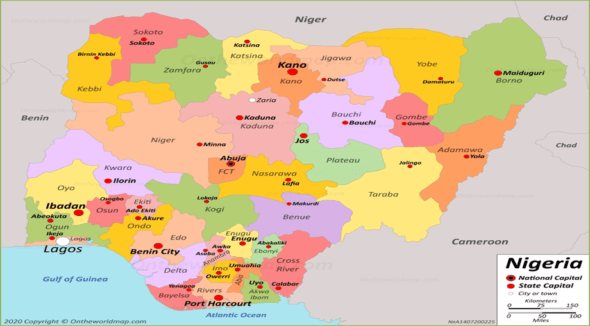
About N653.7 million was paid as ransom in Nigeria to Kidnappers between July 2021 and June 2022 for the release of kidnap victims, a new report by a Lagos-based security and political risk research firm has shown.
The report, ‘The Economics of Nigeria’s Kidnap Industry’, conducted by SBM Intelligence and published in August, detailed the country’s security issues, including incidents of banditry and the costs associated with kidnapping for ransom.
The report said at least 500 incidents of kidnapping were recorded and 3,420 people were abducted across Nigeria, with 564 others killed in violence associated with abductions in the one-year period.
The security report also recorded that N6.531 billion ($9.9 million) was demanded in ransom in the year but N653.7 million ($1.2 million) was paid as ransom for the release of captives.
Based on what could be verify, between July 2021 and June 2022, no fewer than 3,420 people were abducted across Nigeria, with 564 others killed in violence associated with abductions.
It was reported on 25 July, 2022 that eight Nigerian hostages parted with ₦100 million each, while a Pakistani hostage paid ₦200 million.
In 2020, SMB reported that between June 2011 and the end of March 2020, at least $18.34 million was paid to kidnappers as ransom in Nigeria and the larger proportion of that figure (just below $11 million) was paid out between January 2016 and March 2020.
SBM security analyst, Confidence Isaiah, explained that the amount paid as ransom to kidnappers within a year is pretty huge for a population living on less than two dollars a day. According to him, due to the country’s rising rate of poverty, the high incidence of kidnapping-for-ransom is significant. Nigerians spent 62% of their salary on food in 2020, leaving relatively little for discretionary and disposable income.
In October last year, Premium Times, published a number of on-the-ground reports, investigations, and research that exposed the nation’s growing kidnapping-for-ransom epidemic. The research also identified the epidemic’s hotspots across the nation, showing that no region of Nigeria is immune.
For further information Contact Us

